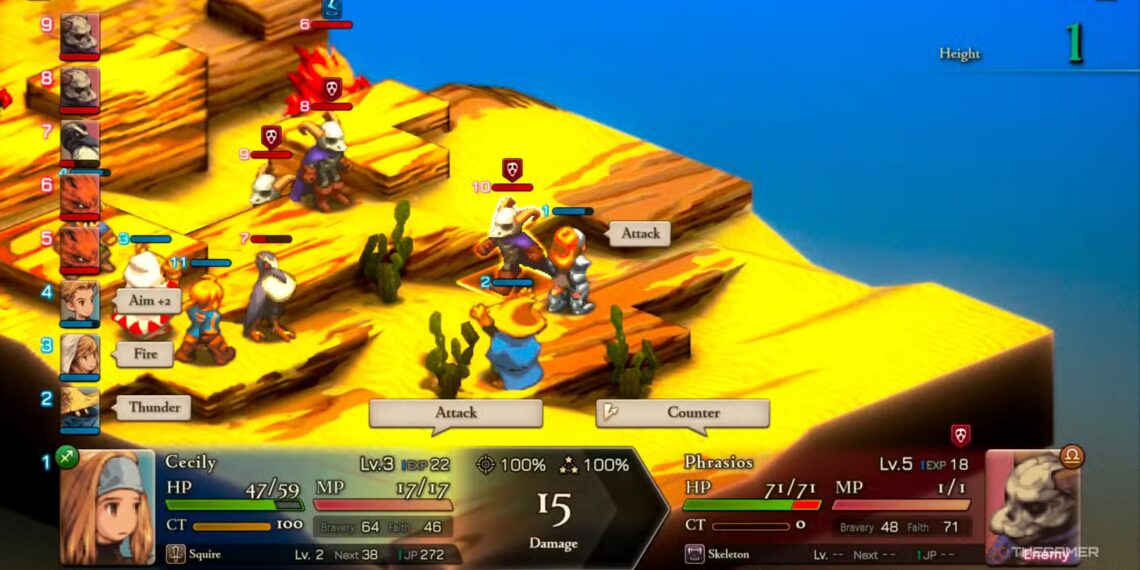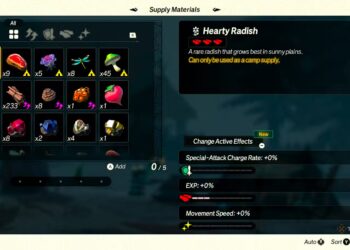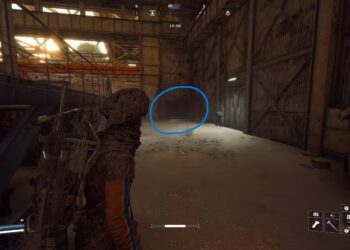Select Language:
The rich and rewarding Job system in Final Fantasy Tactics: The Ivalice Chronicles makes gameplay exciting. It allows you to turn basic units into powerful fighters capable of matching the game’s unique heroes. Building a strong generic unit is essential, and knowing which Jobs provide the best skills, stats, and versatility is key to winning.
This tier list ranks all the standard, non-unique Job classes available to your generic human units. It focuses on how effective they are overall in a normal playthrough, considering their Action, Reaction, Support, and Movement skills. The list assumes a balanced approach to grinding but recognizes the strength of late-game combos.
Our tier list is divided into five categories—from essential to niche or underwhelming options. Rankings are based mainly on each Job’s skills, usefulness, and stat growth for developing units over time.
| Tier | Description |
|———|————————————————————————————————————–|
| S-Tier | Strategy cores: These Jobs are game-changing or essential, offering powerful abilities or core stats vital for end-game setups. Prioritize mastering these. |
| A-Tier | Powerhouses: Excellent Jobs that provide high utility, strong damage, or support skills. Using them significantly boosts your team’s effectiveness. |
| B-Tier | Solid Picks: Useful for specific roles or with powerful abilities, but less versatile overall. Often important early on or as stepping stones. |
| C-Tier | Situational Picks: These Jobs are effective only in certain situations or easily outperformed by others. Best for specific scenarios or as temporary options. |
| D-Tier | Underwhelming: Niche Jobs that have limited utility, difficult to justify, or require effort that isn’t rewarded by their payoff. |
Final Fantasy Tactics excels at combining skills. A Job’s rank may be high even if its main skill set isn’t outstanding if it unlocks key Support or Reaction abilities that define the meta (like the Samurai).
### S-Tier: Strategy Cores
These Jobs are fundamental or overpowered, providing abilities that can completely change the game. Focus on mastering these.
| Job | Reasoning |
|————–|——————————————————————————————————————————|
| Arithmetician | The most broken ability set—casts most magic instantly and at no cost through simple calculations. It’s complex to use but trivializes nearly all content. When AI-controlled, it’s even more effective. |
| Samurai | Excellent Iaido skills; especially Shirahadori for dodge tanks. Doublehand offers a great alternative to Dual Wield for physical units. |
| Ninja | High Speed growth and Dual Wield support. Their ability to attack twice with any weapon allows for massive damage, especially when paired with strong physical Jobs like Monks or Knights wielding Excalibur. |
| Chemist | Unmatched utility and resurrection powers. Items can be used instantly for healing, and Auto-Potion makes support very reliable, especially if you focus on top-tier Potions. |
The Arithmetician is the ultimate late-game goal for spellcasters, enabling instant, map-wide magic attacks that bypass normal balance. Its weak stats are irrelevant compared to its overwhelming power. The Ninja’s key strength is its high Speed and Dual Wield support, making it a top damage dealer when paired with the right Jobs.
### A-Tier: Powerhouses
Strong Jobs that excel in damage output, utility, or support, greatly improving your team’s strength.
| Job | Reasoning |
|—————|———————————————————————————————————-|
| Monk | Offers high damage, excellent utility, and strong growth. Martial Arts provides instant, MP-free attacks, including healing and revival. Brawler support skill is also valuable. |
| Geomancer | A flexible hybrid that combines physical and magical attacks. Geomancy is a fast, mid-range attack that can inflict status effects, and it boasts good all-around stats. |
| Black Mage | Pure magic damage job with high Magic Attack. It’s vital for unlocking other magic jobs and learning Magic Attack Up. Reliable from start to finish. |
| White Mage | The main healer, providing powerful healing and buffs. Always useful, and combining White Mage with Chemist offers ultimate support. |
| Time Mage | Provides key utility like Haste, Slow, and Teleport. Short Charge support is vital for casters and summoners alike. |
Monks are quick to unlock and excel with high HP and attack growth, while Geomancers serve as versatile hybrids. Magic Jobs like Black Mage and Time Mage are essential for magical offense and utility, respectively.
### B-Tier: Solid Picks
Useful but less central Jobs that can fill specific roles.
| Job | Reasoning |
|————–|———————————————————————————————————————————–|
| Orator | Useful for support with Invite and Bravery/Faith tuning. Can equip guns for ranged attacks. Effective in niche battles. |
| Squire | Great for early game, offering useful transitional skills like JP-Up and Move+1. Not for late game but excellent for support or as a backup. |
| Dragoons | Strong single-target damage with Jump, making units untargetable during charge. Good physical growth, especially with Javelin. |
| Summoner | Powerful AoE magic and support abilities, especially Golem. MP costs and long charge times limit use, but can be effective with gear setups. |
| Knight | Early-game tank that can wear Heavy Armor. Arts of War can disable enemies’ equipment but is more niche in persistence. |
| Orator | Useful for its support capabilities, especially in setups that rely on its long-range skills. |
These Jobs excel in key roles but rely heavily on specific conditions, terrain, or enemy behaviors to be most effective. They are critical in certain fights but aren’t as generally reliable.
### C-Tier: Situational Picks
Jobs with limited usefulness or for specific niche uses.
| Job | Reasoning |
|————|————————————————————————-|
| Thief | Stealing can disable enemies or grab rare equipment, but on the battlefield, the utility is limited. Move +2 is useful, though. |
| Mystic | Inflicts various status effects; can be powerful but unreliable. Also a prerequisite for Arithmetician. Mostly useful for offense with Poles at high risk due to fragility. |
| Archer | Good for early safety and ranged damage, but its usefulness drops later. Aim commands are luck-dependent, and growth is mediocre. |
While these Jobs have their moments, they are often outclassed by more reliable options and tend to be situational or only useful in specific contexts.
### D-Tier: Underwhelming
Jobs generally considered to have limited value.
| Job | Reasoning |
|———–|———————————————————————————————————————|
| Dancer | Slower, unreliable enemy debuffing. Its dances have inconsistent effects, and it’s hard to use in most battles. Its mobility is good, though. |
| Bard | Party buffing is slow, often luck-reliant, and benefits take too long to manifest. Movement abilities are excellent, but overall, it’s less effective. |
| Mime | High investment with unpredictable returns. Copies other actions but isn’t flexible or powerful enough to justify the effort. High unlock threshold and limited utility make it less worth it overall. |
These Jobs are mainly for novelty or fun but are generally outperformed by other choices. They can be fun to experiment with but rarely form the core of a winning strategy.
—
In summary, combining skills is what makes FFT’s Job system shine. Even Jobs ranked lower can be valuable if their unique abilities complement your strategy. Focus on mastering Strategy Cores first, then build around solid powerhouses, and use situational or niche Jobs when appropriate.







